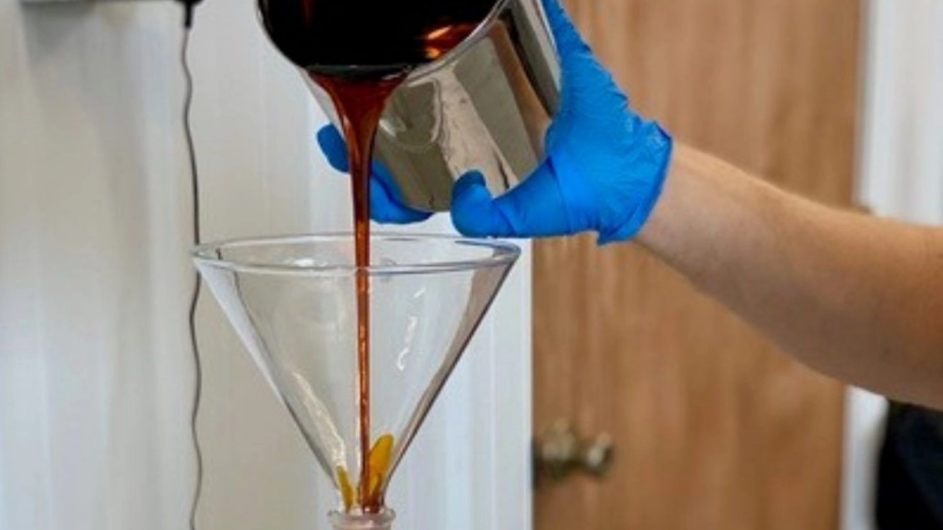Business
After legal setback, hemp extractors hope DEA won’t make any big moves

Hemp extractors worried about a federal crackdown over THC levels have dim prospects for getting help from the judicial system.
Instead, they’re looking to the words of the U.S. Drug Enforcement Administration in hopes the agency won’t put much effort into enforcing its 2020 rule about hemp extracts that go “hot,” or beyond 0.3% THC.
The hemp industry is largely keeping quiet in the wake of a June ruling by a federal appeals court in Washington DC.
The court sided with the DEA and ruled that hemp materials become illegal marijuana the moment they exceed the federal THC limit.
That interpretation alarmed CBD processors because common CBD extraction methods produce material with elevated THC amounts that are later remediated to meet the legal limit.
The court rejected arguments from the Hemp Industries Association and South Carolina CBD maker RE Botanicals, which argued that the DEA was violating the intent of the 2018 Farm Bill, which exempted hemp and its derivatives from the U.S. Controlled Substances Act.
In fact, the judges seemed nothing short of annoyed that hemp activists would challenge a rule that the DEA promised was a simple clarification of the new law.
Writing for a three-judge panel, U.S. Circuit Judge Laurence Silberman said the hemp plaintiffs were “wholly unable to show their injury” and that related arguments about prescription CBD were “frankly ridiculous.”
The decision frustrated Jody McGinness, head of the Hemp Industries Association, who told MJBizDaily after the decision that hemp arguments “weren’t given a real hearing.”
“We’re disappointed in the court’s ruling,” McGinness said.
One hemp company that was not involved in the case and does not perform extraction said the decision could harm all hemp operators.
“The result is bad for business and will continue to be a drag on investment, research and innovation in the hemp industry,” Cynthia Cabrera, chief strategy officer at Texas-based e-commerce hemp retailer Hometown Hero CBD, told MJBizDaily via email.
Next steps
The Hemp Industries Association and RE Botanicals have limited legal options after the defeat.
Because the case was heard before a federal appeals court, the only other court that could review the hemp claim is the U.S. Supreme Court.
Problem is, the nation’s highest court isn’t obliged to take any cases except when states sue each other (which actually happened over cannabis in 2014, when Oklahoma and Nebraska sued Colorado for legalizing adult-use cannabis; the U.S. Supreme Court declined to interfere).
In this case, the hemp activists concede that the Supreme Court is highly unlikely to intervene.
They could try another legal maneuver and ask for what is called an “en banc review,” where the appeals court takes another look. But even that is a long shot.
“The odds of that being granted are something less than 1%, statistically,” McGinness said.
The other plaintiff in the case, RE Botanicals, did not respond to requests for comment from MJBizDaily.
Silver lining
The DEA’s rule might appear to criminalize common methods of CBD extraction.
But the agency’s defense is giving hemp activists and attorneys hope that their lawsuit was worthwhile.
That’s because the DEA’s lawyers said in writing and in court they had no intention of overseeing the hemp industry beyond what Congress allowed in 2018. (The agency did not reply to follow-up questions from MJBizDaily.)
Andrea Steel, a cannabis attorney in Houston who followed the DEA case but didn’t work on it, said the challenge was useful even though the hemp activists lost. That’s because the DEA showed no interest in regulating hemp while it is being processed.
“It’s just not a priority for the DEA,” Steel said. “The DEA reiterated (that) nothing in this rule was meant to expand (the agency’s) authority.”
In fact, she hopes the DEA’s words might benefit manufacturers making delta-8 THC products from hemp. That’s because the DEA reiterated that marijuana is defined by a level of delta-9 THC, the molecule that cannabis plants make naturally.
Another cannabis attorney, Patrick Goggin, said he would advise hemp extractors to “proceed with the status quo” after the DEA decision.
Goggin, chief lawyer for the California Hemp Council, said the failed lawsuit could prove valuable because of the legal record it leaves behind.
“It’s useful in the sense that the DEA indicates that they’re not going to enforce (the rule),” he said, “and it took the challenge to get them to state that.”
Source: https://mjbizdaily.com/after-legal-setback-hemp-extractors-hope-dea-wont-make-any-big-moves/